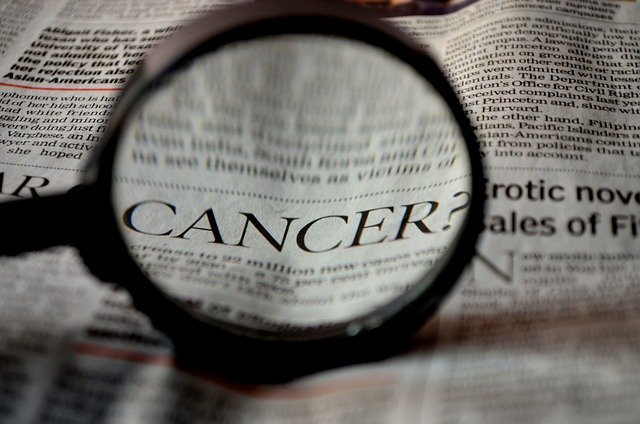5 things they never tell you about life after cancer: unexpected emotional challenges, lingering physical side effects, financial strains, shifting relationships, and a new outlook on life.
Surviving cancer is an incredible accomplishment; the journey never truly ends, even if you are in remission. There are many unanticipated and never talked-about changes in life after cancer. These are five things about life after cancer that they never tell you.
Unexpected Difficulties with Emotion
The unforeseen emotional hurdles definitely jump out when considering the list of 5 things people never tell you about life after cancer. When you hear the terms “remission” or “cancer-free,” you anticipate experiencing only happiness and relief.
Even if those emotions are undoubtedly there, they frequently accompany a complicated range of feelings that can be very taxing. Cancer survivors frequently experience melancholy, anxiety about the disease coming back, and even survivor’s guilt.
Many struggle to adjust to their new normal and experience a sense of loss for the person they were before the diagnosis.
It takes more than simply physical survival to heal emotionally and psychologically, and this can be a far more involved and drawn-out process. You can express your emotions and learn that you’re not alone in this by getting help from a therapist or attending a support group.
Physical Side Effects That Remain
The physical side effects that remain after cancer treatment are one of the five important things doctors never tell you about life after cancer. You might think that after treatment, you’ll return to normal, but many survivors deal with persistent physical issues.
Many times referred to as “chemo brain,” fatigue, neuropathy, and cognitive abnormalities might last long after therapy is finished. Your ability to work, socialize, and engage in things you used to love may be affected by these adverse effects. It’s critical that you discuss your concerns with your healthcare staff.
They are able to offer management techniques and remedies for these symptoms. You may also greatly benefit from cognitive exercises, occupational therapy, and physical therapy in your efforts to regain function and strength.
 5 things they never tell you about Life after cancer
5 things they never tell you about Life after cancer
Budgetary Difficulties
Financial pressures are one of the 5 things they never tell you about life after cancer. They are a big problem. Numerous cancer survivors must endure years of financial hardship due to the exorbitant expense of therapy.
Financial burdens can be greatly increased by medical bills, continuing treatment expenses, and the possibility of losing income.
If you can’t go back to work right away or if your insurance doesn’t fully cover your costs, this tension may get worse. It’s critical to look into financial counseling and cancer survivor help organizations.
Resources are available from organizations such as the American Cancer Society to assist in overcoming these financial obstacles.
You can reduce your tension and concentrate more on your recuperation by taking charge of your finances and looking for available resources.
Changing Connections
In light of the 5 things they never tell you about living with cancer, it is important to comprehend how your relationships will change. Your connections with family and friends may change in unexpected ways as a result of cancer.
Some may distance themselves, uncertain of how to offer the assistance they require. Some might stand up and turn into your most powerful allies. Cancer survivors frequently experience feelings of loneliness and misinterpretation.
It’s essential to be open and honest with your loved ones. Tell them how you’re feeling and what kind of help you require. Making connections with other survivors who are cognizant of your experiences can also be beneficial.
They may be able to provide empathy and special insights that others might not be able to. Recall that it’s acceptable to establish limits and give priority to caring for and supporting relationships.

A Fresh Perspective on Life
Last but not least, a new perspective on life that many cancer survivors experience is one of the most significant discoveries from the 5 things they never tell you about life after cancer.
Reevaluating what really matters is often the result of facing a life-threatening illness. It’s possible that your priorities will change dramatically. It could appear insignificant now, but it was vital previously.
This fresh viewpoint can be intimidating as well as freeing. Accept this transition as a chance to bring your life into line with your actual goals and beliefs.
You may choose to go after a different line of work, spend more time with close friends and family, or finally pick up that long-standing interest. With a new perspective, you may live a more purposeful and happy life that is driven by your own passions and desires.
Final Words
Living with cancer is a difficult path that has its own advantages and disadvantages. Understanding and planning for these things can help survivors negotiate their new normal with resilience and hope.
These things can include emotional ups and downs, financial obstacles, and relationship difficulties. Adopting a fresh perspective on life can result in significant personal development and fulfillment.
FAQs
Q : Is feeling nervous after receiving cancer therapy normal?
A: Survivors do experience anxiety frequently. Many are concerned about future health issues and recurrences. This is only one of the five things they never tell you about life after cancer, but talking to a mental health specialist can help you manage these feelings.
Q : Will the treatment’s physical adverse effects eventually go away?
A: While some side effects might go away with time, some might not. See your physician for advice on how to treat these symptoms. One of the five things about life after cancer that they never tell you about is this recurring problem.
Q : How can I budget for the costs associated with receiving cancer treatment?
A: To learn about your possibilities, speak with your insurance company, look into help programs, and seek financial advice. One of the five things they never tell you about life after cancer is financial strain.
Q : What is the best way for me to handle relationship changes?
A: Honest and open communication is essential. Talk to your loved ones about your wants and feelings, and don’t be afraid to ask for help from those who can relate to you. Among the five things they never tell you about life after cancer is the shift in relationships.

 5 things they never tell you about Life after cancer
5 things they never tell you about Life after cancer








